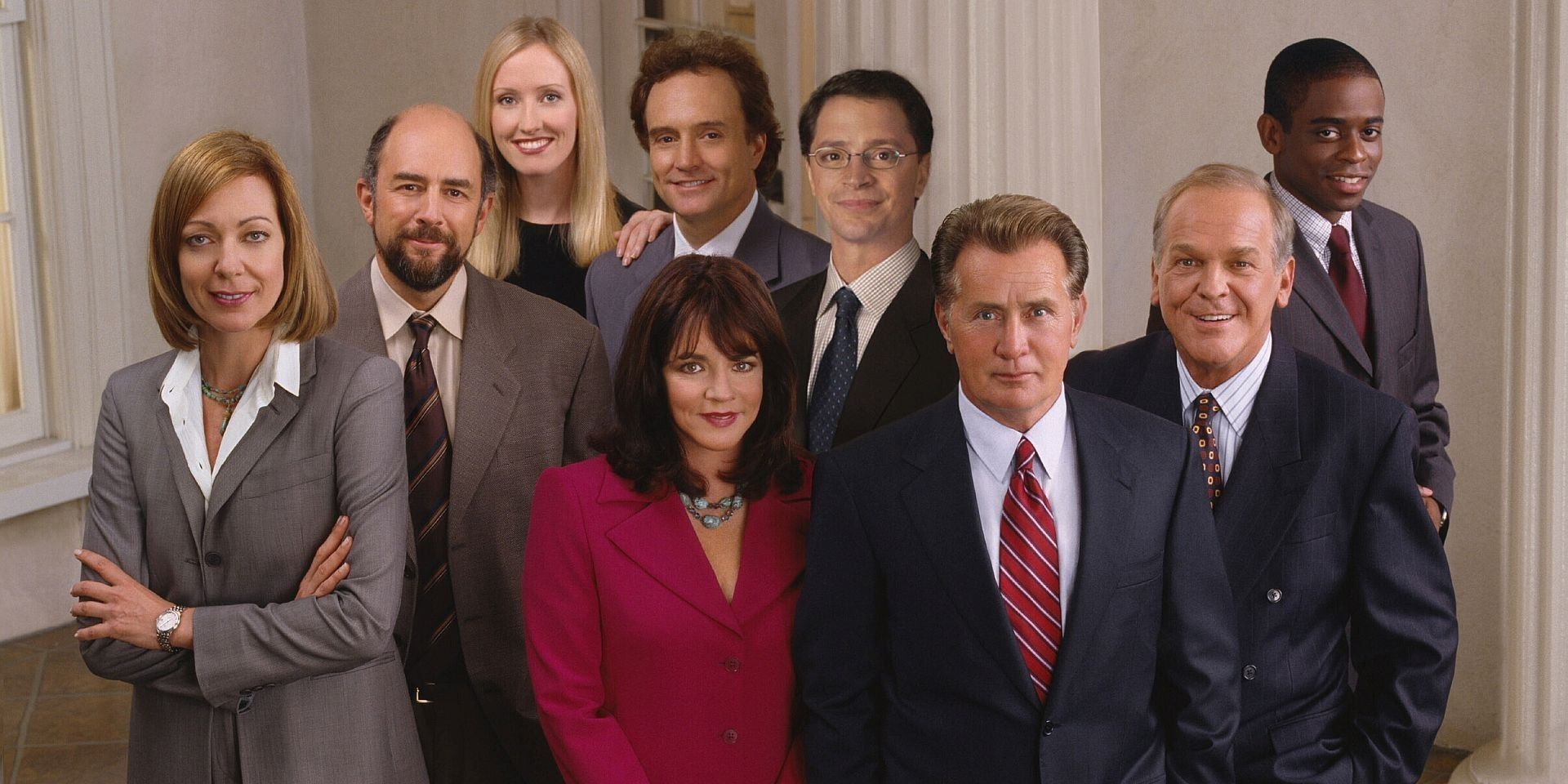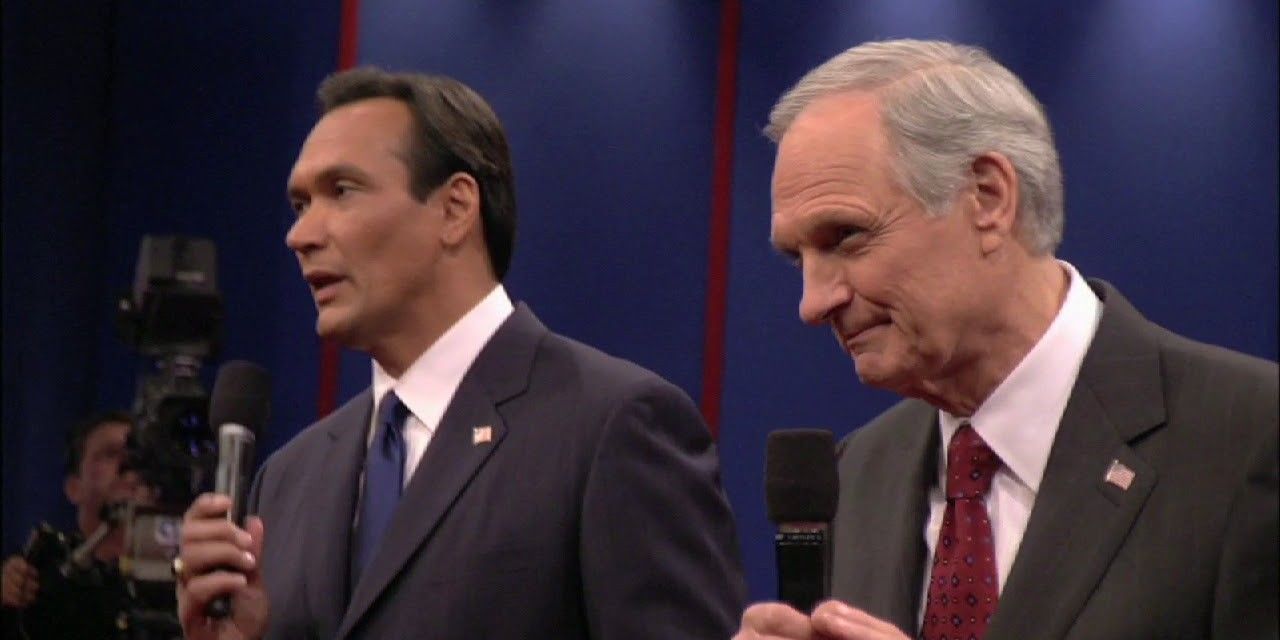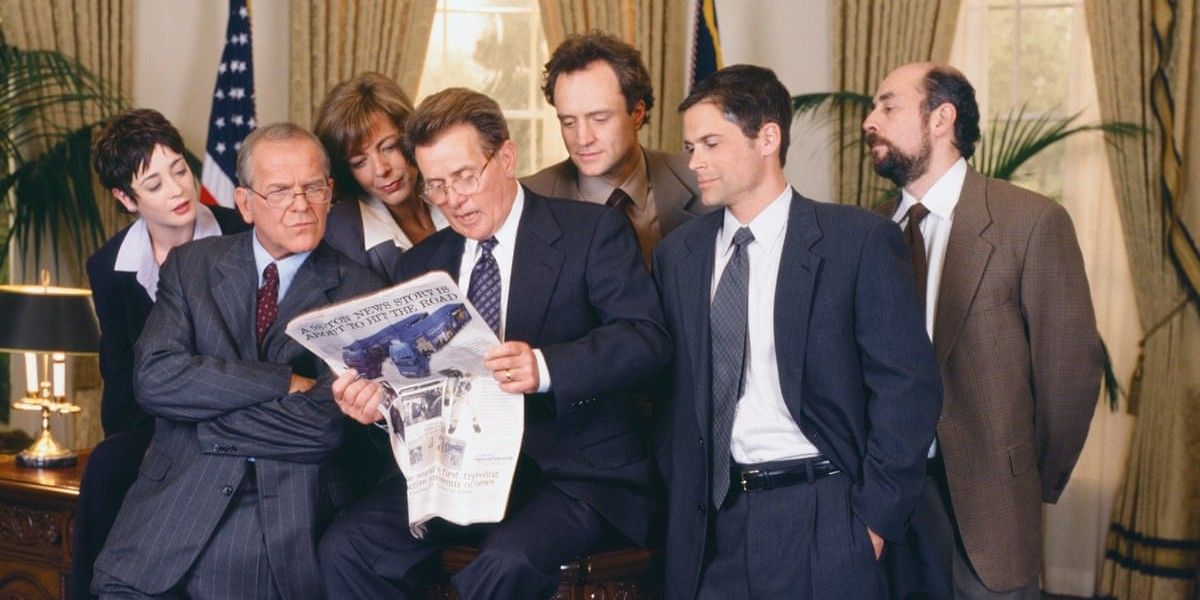Airing for seven seasons on NBC, The West Wing showed that political drama could be engrossing weekly television. Featuring incredible performances from the likes of John Spencer and Allison Janney, the series told the story of the senior decision-makers in the fictional Bartlet administration, focusing on those whose names don't always make front-page news. When The West Wing premiered in 1999, it quickly garnered a reputation for smart, fast-paced dialogue and a visual style replete with walk-and-talk scenes that set it apart from other shows.
For many, The West Wing became a window into the political process. For the most part, the show tried to steer clear of plotlines centered on scandal and instead attempted to make the give-and-take of political dealings entertaining. However, despite its award-winning cast and presentation, a variety of factors caused The West Wing's cancellation in 2006.
How Ratings and Production Changes Affected The West Wing
The West Wing first began to hemorrhage viewers following the departure of series creator Aaron Sorkin, who initially penned the majority of the show's quick-witted dialogue. The demands of writing every episode of such a dialogue-rich drama took its toll on Sorkin, leading to scheduling issues. Sorkin chose to leave The West Wing after its fourth season, following an arrest for possession of mushrooms. Without his writing style, the series lost some traction and viewership in its fifth season.
The declining ratings only worsened following NBC's announcement that the show's seventh season would move from its usual Wednesday slot to Sunday nights. This schedule change proved to be a costly decision, as The West Wing's ratings plummeted by 30 percent. In fact, the first two episodes of the season recorded the lowest-ever ratings for the show, which some say sealed The West Wing's fate.
The West Wing Reached a Natural Conclusion with Season 7
While the change in writers and declining viewership contributed to the end of The West Wing, the timing also made narrative sense. The show had followed both terms of the Bartlet administration, and Season 7 saw the election of the next president, Matthew Santos (played by Jimmy Smits). Ending The West Wing as the fictional government transitioned to Bartlet's successor provided the series with the perfect wrap-up.
Ultimately, The West Wing relied too heavily on a particular writing style for its success, so it was destined to come to an end after Sorkin's departure. That the show was able to continue on for a number of seasons speaks to the dedication of the fan base and the skill of the cast, whom many had come to respect. But The West Wing's cancellation after Season 7 shouldn't have been a surprise, as it was the inevitable conclusion of the storylines set up in the first season and the two-term limit of U.S. democracy.



